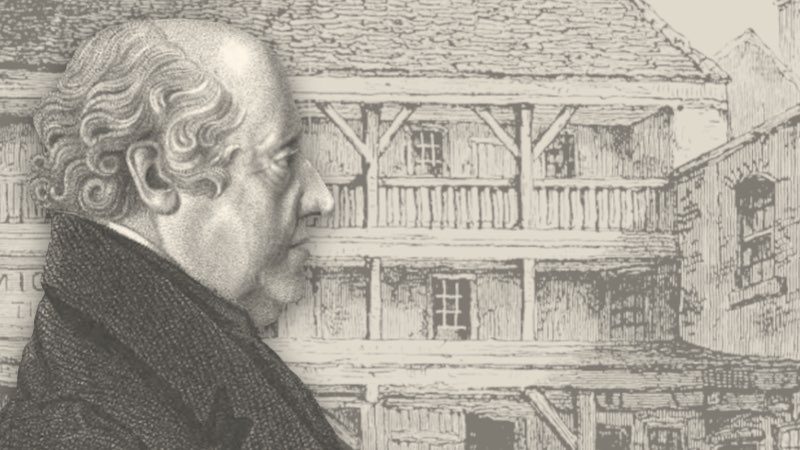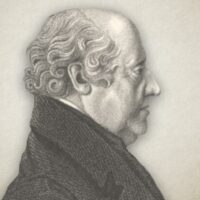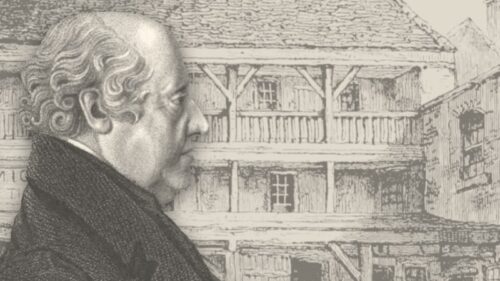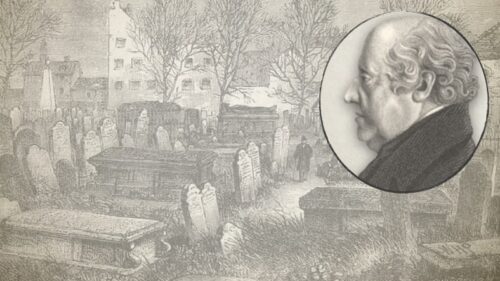
Preface To William Button’s Rebuttal Of Andrew Fuller’s “The Gospel Of Christ Worthy Of All Acceptation”
“Remarks On A Treatise, Entitled, The Gospel Of Christ Worthy Of All Acceptation, Or, The Obligations Of Men Fully To Credit, And Cordially To Approve Whatever God Makes Known. By Andrew Fuller. Wherein The Nature Of Special Faith In Christ Is Considered, And Several Of Mr. Fuller’s Mistakes Pointed Out: In A Series Of Letters To A Friend.”
By William Button
Eph 2:8: “By grace ye are saved through faith; and that not of yourselves: it is the gift of God.”
Gal 3:12: “The law is not of faith.”
Tit 1:1: “According to the faith of God’s elect.”
1785
Preface
Mr. Thomas Goodwin, in his address to the reader, annexed to his discourse on the true nature of the gospel, observes, “It concerns every minister of the gospel to put a stop to any opinion which hath the least tendency to Arminianism. We are not as idle spectators, to stand by with patience to see the truths of the gospel either openly invaded, or secretly supplanted, but as long as we are able to frame a thought, or hold a pen, it is our duty to make a vigorous opposition.” This consideration, together with the pressing solicitations of some intimate friends, have been the occasion of these letters being presented to the public.
That Mr. Fuller’s sentiments, which lead to general calls, invitations, and exhortations, have led some aside from the truth, is what he himself seems tacitly to acknowledge, when he says, “It out to be confessed too, that too many of those who have dealt in addresses to unregenerate sinners, have sadly neglected the very spirit and glory of the gospel. In such addresses perhaps it has been too common likewise to go aside from the scriptural intent of them, and to dabble in Arminianism.” (P. 167) Now I wish ever to hold, vindicate and propagate, that which has not the least tendency to lead persons astray from the spirit and glory of the gospel, and which has the greatest tendency to carry entirely off from Arminianism, yea, even from so much as dabbling in it.
I am sorry to find what is advanced in Mr. Fuller’s treatise seems to gain so much ground, as it appears to me to be opposite to scripture and experience, and tends to overthrow the distinguishing and glorious doctrines of the gospel, which he himself expresses a regard for. Yet I wonder not at its prevailing, as it is exceedingly pleasing to human nature to be informed of its dignity, and very gratifying to proud man to be told he can believe if he will, for “the cannot consists in a will not,” says Mr. Fuller. (P. 71) It is too humbling, too degrading, to tell a sinner he has neither will nor power to believe. Those who maintain his natural ability will be sure to please the ear of men in general, and so gain what is much sought after in the present day, Popularity.
I understand it has ben said by some strenuous advocates for Mr. Fuller and his sentiments, that his book is unanswerable. To such I expect to appear contemptible, but that I must bear as well as I can. Whether I have answered it or not, I cannot be of their opinion. I think Mr. Fuller’s doctrine has been confuted long ago, by Brine, Wayman, and others, who have written directly on the subject. And I think there are persons even in this day of error, who, did they think it worth their while, could easily set aside Mr. Fuller’s reasoning, specious as it may appear to many. If I have not answered, I still am satisfied that I have attempted to answer. If I am not able (and I freely confess I am not) to defend the truth as it deserves to be defended, and as many others are able to defend it, yet I think it my duty to do it as well as I can, and am encouraged from this consideration that, “if there be first a willing mind it is accepted according to that a man hath, and not according to that he hath not.”
There are those who, warmly espousing Mr. Fuller’s cause, have been pleased to say, they hope his book will cure some of their Gillism and Brinism. To such I bed leave to say, I am ashamed of their contemptuous manner of speaking of those great and good men, Gill and Brine, whose characters and works ought ever to be revered and esteemed by all who call themselves Christians. Great and might men in Israel fell when they fell; and few, very few, of their piety, eminency and usefulness are left behind. They were set for the defense of the gospel, and they defended it well. Yes, God made each of them “a defensed city, and iron pillar, and a brazen wall,” against the adversaries of truth; and they stood firm to the last. O that thousands more were raised up like them. I trust there are some yet remaining, who are too bad of the disease of Gillism and Brinism (if it be a disease) to be cured; and I wish the persons alluded to may live and die as worthy as those men whose gospel principles they seem to despise.
The Critic’s censure I expect not to escape, and indeed I am sensible my performance will not bear the Critic’s eye. All I can say on this head is, I wrote not even with an attempt to please him. My views is, I hope, the glory of God, the exalting the riches of free grace in the sinner’s salvation, and the establishing plain Christians in the truth. I have therefore only given a plain scriptural account of things, and have contended myself with appealing to common sense, without much reasoning on the subjects treated of. I have, in order to confirm my ideas, made use of a variety of quotations from different authors well known by Christians in common. It may perhaps be thought there are too many of these: but in this I have only trodden in the footsteps of Mr. Fuller himself, who takes up several pages in citations from the works of others. I meant therefore, lest any should think I stood alone, to shew that I have as great and good human authorities on my side as he has on his. Though after all, the Bible alone I wish to make the rule of my faith and practice. I would call no man—Master on earth, but acknowledge one master even Christ.
I hope the reader will not have reason to find fault with the spirit and temper in which these letters are written. I have endeavored to write calmly and cooly, without warmth and heat, though I confess I found myself considerably hurt at some insinuations thrown out by Mr. Fuller against those who differ from him, and at his representing to the world, those consequences as following their doctrine which to not follow; what I refer to, the reader will find noticed hereafter.
The whole I desire to leave in the hands of God, intreating (if it be his pleasure) a blessing may accompany it, that it may answer the purposes designed. And should the candid reader on the perusal receive any profit, let him give the glory to God, to whom it will be alone due.
William Button (1754-1821) was a Strict and Particular Baptist preacher. He served as pastor for more than forty years of the church meeting at Dean Street, Southwark. This was a newly formed church, the members of which had separated from Cater Lane Chapel. After the death of John Gill, these persons opposed the pastoral appointment of John Rippon.





